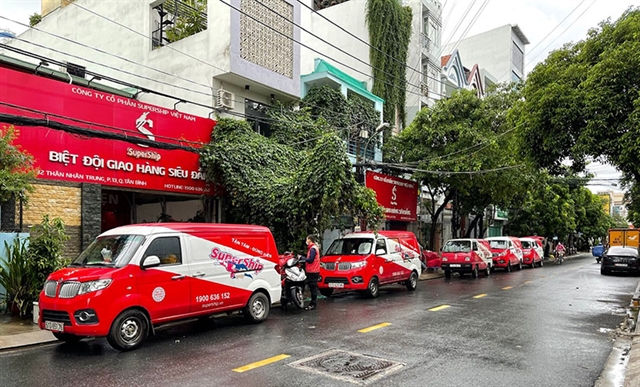 Economy
Economy

 |
| Agencies and organisations that wish to apply chatbot AI in their operations are encouraged to adopt and disseminate these guidelines in line with their own practical needs. VNS Illustration |
HÀ NỘI — The Ministry of Science and Technology (MoST) has released a set of general principles guiding civil servants, public employees, and other workers on the use of large language models (AI chatbots) to support their work.
These guidelines aim to provide clear, accessible instructions to help public sector personnel use AI tools effectively and safely. Agencies and organisations that wish to apply chatbot AI in their operations are encouraged to adopt and disseminate these guidelines in line with their own practical needs. The guidance ensures the safe application of AI while promoting meaningful benefits.
According to MoST, when providing data or using AI chatbots, users must not upload any state-classified materials or sensitive information such as personal data, internal documents, or information that could affect national security or public order.
The content supplied to AI chatbots must also not contravene Vietnamese historical, cultural, ethical, political, geographical or sovereignty principles, nor violate traditional customs and moral standards. Users must also avoid uploading copyright-infringing content or any material breaching intellectual property or other related rights.
Furthermore, users are advised not to register chatbot accounts using their official work email or passwords associated with Government systems to ensure information security. AI chatbots should be used cautiously, responsibly, and efficiently.
Results generated by chatbots must be carefully reviewed for accuracy and contextual relevance before being applied to official work. Decisions should not rely solely on AI outputs but be supported by the user’s own knowledge and experience.
In addition to general usage principles, MoST also provides specific instructions for Government bodies and staff on adopting and managing these tools.
Agencies are responsible for educating and guiding staff on using AI chatbots in a way that aligns with their responsibilities and the organisation’s nature. Special attention should be given to cybersecurity and data safety. The head of each agency is accountable for the chatbot use within their organisation.
Access to chatbots should be controlled, with proper permissions aligned with the user’s role. When employees resign or transfer to another organisation, their AI chatbot accounts must be deactivated to ensure continued data security.
Agencies are also encouraged to gradually build their own knowledge databases and develop sector-specific AI chatbots to assist in their internal operations. Supervisors must monitor chatbot use among staff to ensure compliance with security and operational guidelines.
For individuals, it is critical to manage and safeguard personal information used across official platforms. Users must not share login details or connect internal systems to external AI tools without being authorised. When using AI chatbots on public internet access points, auto-password save features should be disabled.
Personal data and sensitive information about oneself or others must never be uploaded to AI chatbots. The tools should never be used for unlawful purposes, cultural violations, hacking, deepfake creation, fraud or other malicious activities.
At a recent meeting between Deputy Prime Minister Nguyễn Chí Dũng and the Ministry of Science and Technology, Minister Nguyễn Mạnh Hùng outlined key tasks for the ministry.
These include building a national AI transformation programme that promotes AI application across all sectors and developing a shared national AI computing infrastructure. The programme will reflect the spirit of being 'comprehensive' and 'for all', aiming for every citizen and civil servant to have access to a personal AI assistant.
The deadline for submitting this national AI programme to the Prime Minister is May 2025, with a target of rolling out virtual assistants for the public by November this year.
Another major task for 2025 is to build shared AI computing infrastructure. This involves establishing multiple data centres equipped with GPU servers, enabling companies to train and develop their own AI applications. This move aligns with Việt Nam’s commitment to making AI a core technology and supporting domestic enterprises in developing practical AI solutions.
At MoST itself, Minister Nguyễn Mạnh Hùng has called on agency leaders and staff to actively and regularly use virtual assistants in their daily work to boost productivity and efficiency. VNS